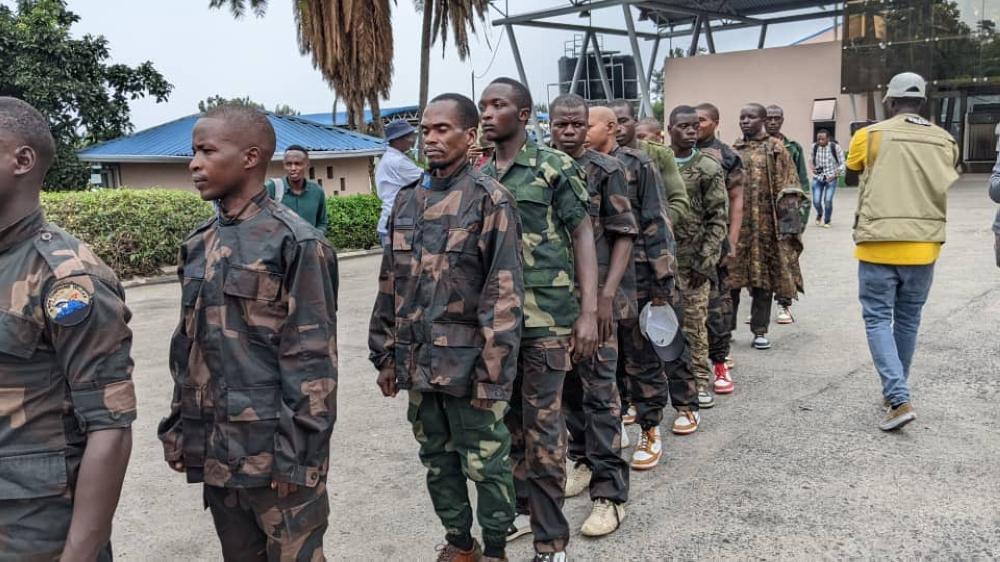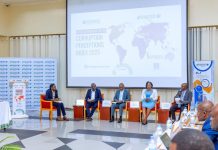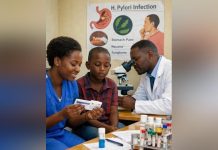Africa-Press – Rwanda. Rwandans living in Germany have condemned the German government’s decision to suspend new development funding to Rwanda.
In a statement issued on March 12 to Germany’s Federal Minister for Economic Cooperation and Development, Svenja Schulze, the Rwandan diaspora condemned the move as “unjust and counterproductive, as it politicises development aid and unfairly attributes responsibility for the conflict in eastern DR Congo to Rwanda without factual basis.”
The community noted that the root causes of the conflict in eastern DR Congo can be traced back to colonial history, particularly the 1884 Berlin Conference, where European powers, including Germany, arbitrarily drew borders that divided communities.
“The artificial borders that resulted from colonial rule divided the people, leaving many Rwandophones in what is today DR Congo.”
They noted that under German and Belgian colonial rule, ethnic divisions were worsened through identity-based classifications, which laid the foundation for discrimination against Rwandophones in DR Congo.
The Rwandan community further referenced the failure of the international community to disarm the perpetrators of the 1994 Genocide against the Tutsi, who fled to eastern DR Congo and later formed FDLR, a terrorist militia founded by remnants of the masterminds of the 1994 Genocide.
‘Openly encourage genocidal rhetoric’
Their statement also condemned the increasing ethnic violence targeting Rwandophones in eastern DR Congo, citing disturbing incidents including acts of cannibalism, mass killings Goma and Bukavu in 2023 and 2024.
“The Congolese government and its military openly encourage genocidal rhetoric. Several high-ranking DR Congo politicians have openly called for the extermination of Rwandophones, further fuelling ethnic violence. The government of Kinshasa went far and created an armed ethnic militia called Wazalendo with the mission to kill Rwandophones and Tutsi.”
The diaspora community referenced the 2022 visit of the then UN Special Adviser on the Prevention of Genocide, Alice Wairimu Nderitu, who warned of the risk of genocide against Rwandophones in eastern DR Congo. On many occasions, Nderitu emphasized that the first line of response to genocide prevention should be taken before violence is imminent.
On November 30, 2022, following her official visit to DR Congo, Nderitu was “deeply alarmed about the escalation of violence in the Great Lakes Region where a genocide – the 1994 Genocide against the Tutsi in Rwanda – happened. “The current violence is a warning sign of societal fragility and proof of the enduring presence of the conditions that allowed large-scale hatred and violence to erupt into a genocide in the past,” she said.
Her visit followed a technical-level mission by her office that established that indicators and triggers contained in the UN Framework of Analysis for Atrocity Crimes were present in DR Congo including; dissemination of hate speech and absence of independent mechanisms to address it; politicization of identity; proliferation of local militias and other armed groups across the country; widespread and systematic attacks, including sexual violence, against especially the Banyamulenge on the basis of their ethnicity and perceived allegiance with neighboring countries; and intergroup tensions.
In eastern DR Congo, she explained, the current violence mainly stems from the refugee crisis that resulted as many individuals involved in the 1994 Genocide against the Tutsi in Rwanda fled to eastern DR Congo, forming armed groups such as FDLR “which is still active” in the region.
In response to the presence of this armed group, she said, new armed groups were formed “and the failure to bring non-state armed actors to book is the consequence we now see.” Nderitu went as far as noting that finding a solution to the ongoing conflict in eastern DR Congo would require addressing the underlying causes of the violence and learning lessons from the past.
“Our collective commitment not to forget past atrocities constitutes an obligation to prevent reoccurrence,” she said.
The AFC/M23 rebellion in eastern DR Congo which has vowed to uproot tribalism, nepotism, corruption, and genocide ideology, among other vices, widespread in the vast country, continues to denounce Kinshasa’s endless targeting and killing of unarmed Banyamulenge civilians in Minembwe, Uvira, and surrounding areas in South Kivu Province.
Lately, villages inhabited by unarmed Banyamulenge civilians are targeted and destroyed by the drones, Sukhoi fighter jets, and mortars of the Congolese army coalition in South Kivu Province.
Press Kinshasa to end persecution of Rwandophones
The Rwandan community in Germany also noted Rwanda’s security concerns, particularly the collaboration between the Congolese army (FARDC) and FDLR, in attacks against their homeland.
“Rwanda has repeatedly warned the international community about security threats emanating from the DR Congo, including the direct collaboration between FARDC and the FDLR.”
The community urged the German government to adopt a more balanced and fact-based approach. They urged Germany to hold Kinshasa to account for failing to disarm the genocidal militia and implement peace agreements. They also called for accountability regarding the Congolese government’s failure to effectively manage hundreds of armed militias that continue to destabilise the region.
Additionally, the community demanded that the German government should press Kinshasa to end the persecution of Rwandophones and protect their citizenship rights.
They urged the German government to, “support regional security mechanisms that ensure Rwanda’s concerns about the FDLR threats are addressed.”
They also condemned the presence of European mercenaries in DR Congo, emphasising the need for European actors to avoid escalating violence, and called for constructive engagement with regional leaders to find lasting solutions, rather than resorting to coercive and one-sided measures.
The statement added that Germany should, “avoid politicising development cooperation which Rwanda has proven to be a very effective user.
“This undermines both the Rwandan and German governments longstanding efforts in alleviating poverty and creating prosperity for the Rwandan people.”
For More News And Analysis About Rwanda Follow Africa-Press






